A Google-Niko Partners report commissioned in 2020 found that as of 2019, female gamers make up 38 per cent of Asia’s total gaming population of 1.33bn, and the numbers are growing exponentially. Yet, the number of women in the upper echelons of the gaming world remain a minority, and female gamers worldwide have reported facing gender-based harassment. With the number of female gamers projected to grow over the next few years, TheHomeGround Asia speaks with six women in the esports and gaming industry to gather their experiences as a female gamer or esports professional, and hear their hopes for the future of gaming and esports.
Eugenia ‘Xerrith’ Lee has been gaming her whole life. From console to PC games, she has dabbled in them all, and she is no noob (slang for a novice, inexperienced, or poor player) either.
In first-person shooter game Valorant, Ms Lee holds the rank of Immortal, the second highest in the game, and one that only the top one per cent of players in a region achieve. As a talent under EMERGE esports and full-time streamer on live streaming platform Twitch, Ms Lee consistently clocks more than 20 hours of gameplay a week, and that excludes any time she spends playing the game off-camera.
Yet, despite her proven capabilities and experience, she often finds her opinions and strategies disregarded simply because she is a woman: “They’re [male players] like, ‘Oh, you’re a girl. You play defence, just stop talking, go back to the kitchen,’ and stuff like that.”
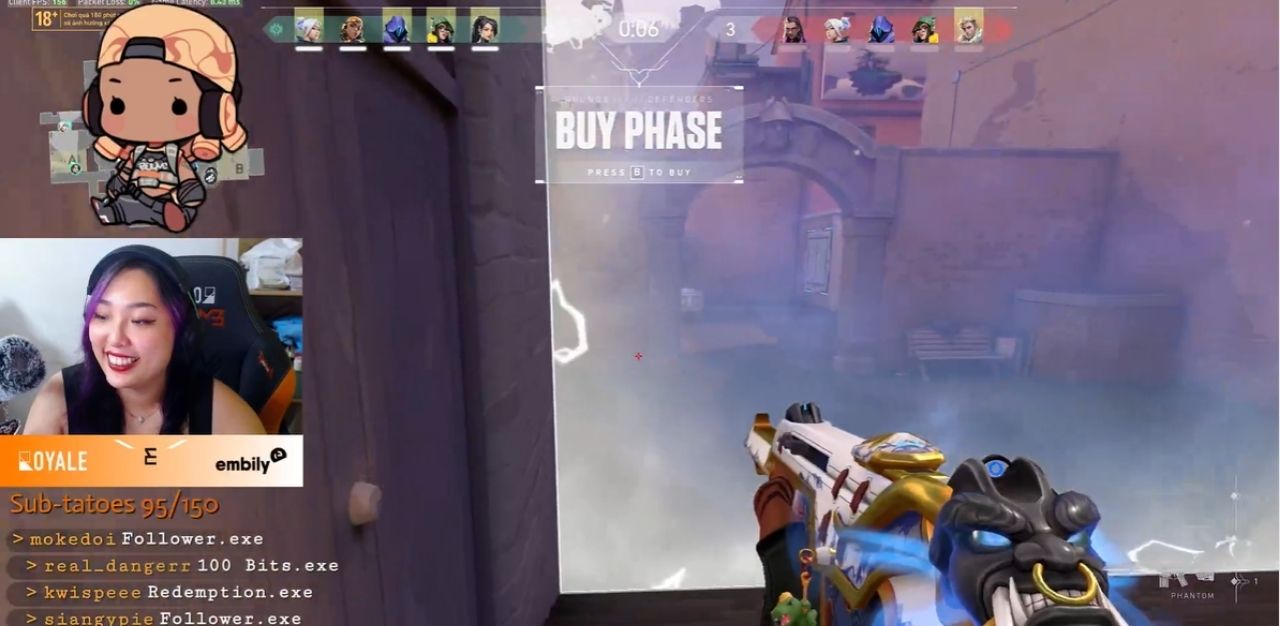
She recounts an incident when she was in a match and a male player repeatedly told her, ‘Make me a sandwich,’, every time she asked him to do something, despite having fewer kills than her in that match.
But this has happened so often that it is water off a duck’s back. “I have seen this so many times. I have been yelled at so many times, and I’m used to it,” says Ms Lee. “I just try to talk to them normally and tell them, ‘We can try to win this, or you can spend your time being toxic to another girl on the internet.’”
A perception that women are inferior gamers
Singer-songwriter and streamer Jill-Marie Thomas says, “When you’re a female gamer, people always think that you suck.”
Going by her moniker Aunty Jill on gaming profiles means that her sex is displayed for all to see, and fellow gamers bring it up whatever her performance. “If I’m top fragging and I’m winning the game, I’m the MVP of the game, they’re like, ‘Are you really a girl?’… And then when I don’t do so well, ‘Aiyah, because you’re a girl.’… One thing that they like to say is, ‘Wah, you shoot damn well for a girl.’ I hate that,” she bemoans.
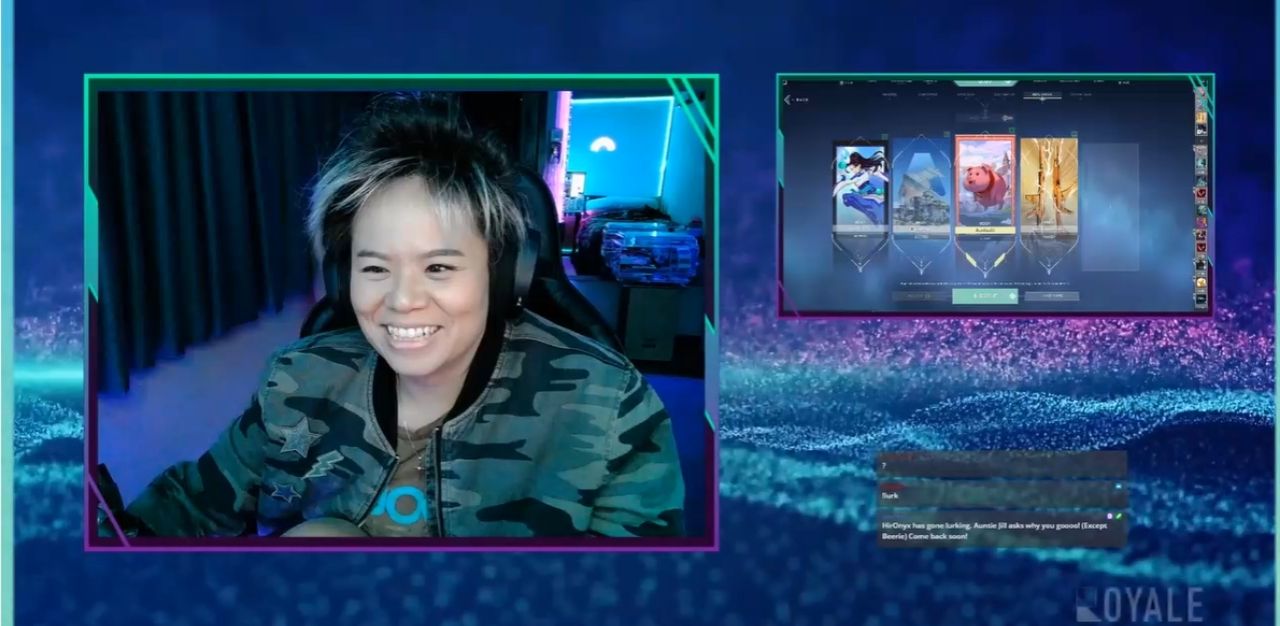
Crystal ‘Vinny’ Lai agrees. The senior executive for events and community at ONE Esports was an active League of Legends (LoL) – a multiplayer online battle arena game – Twitch streamer, in 2017.
She recounts her LoL days: “Back then, I was in a female gaming team and we had a clan tag (a prefix attached to a gamer’s username to indicate the clan or team they represent) in front of our names, so it’s really easy to identify us as girls. When I played League of Legends, it was really commonplace to go into champion select, and then people just started going ‘Oh no, it’s a girl, we’re going to lose the game.’”
This prejudice extends even to professional settings and tournaments. Mika Fabella, writer and producer at ONE Esports, cites an example of how she had been casting a Valorant tournament during an all-females show match, and saw many disappointing comments: “People were saying, ‘Oh, this is boring because it’s an all-girls show match’, or ‘This is not really the pros, because it’s all girls.’.”
For female competitors, such perceptions are part and parcel of their careers. Katherine ‘Kimiko’ Ho is a competitive Mobile Legends: Bang Bang (MLBB) player, and has competed in regional tournaments, such as the MLBB Professional League MY/SG in 2019, emerging first runner-up, and the SG/MY MLBB Female Esports League in 2020, emerging second runner-up.
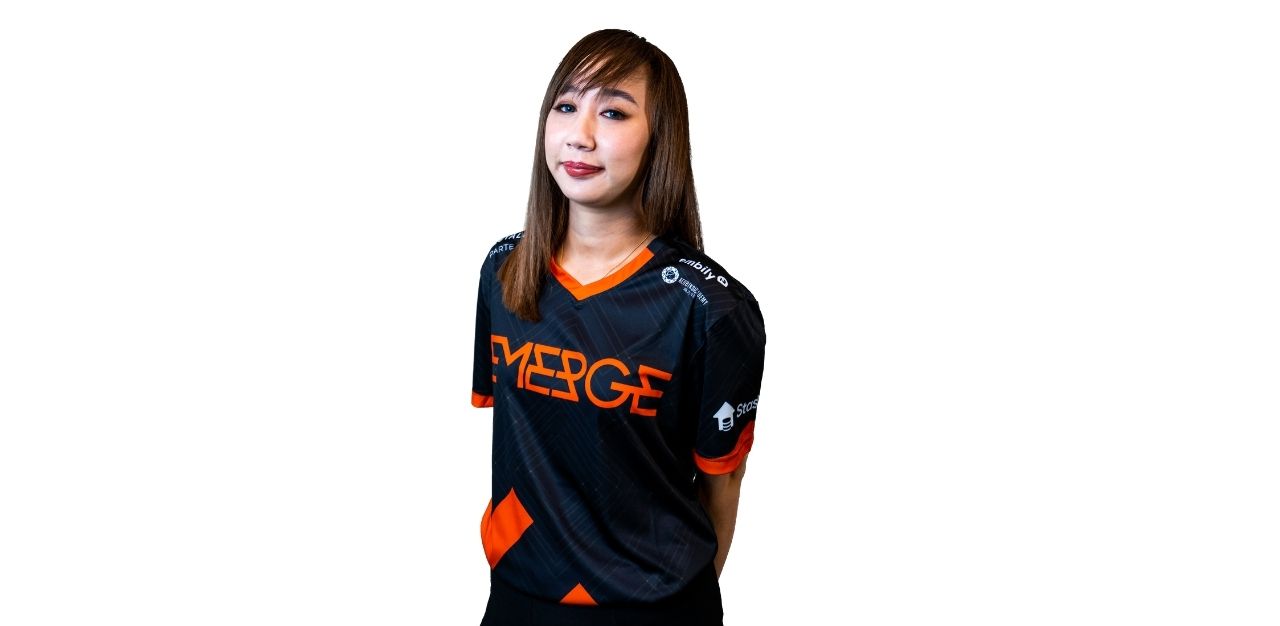
Going into tournaments, Ms Ho highlights, “People focus more on appearance than gameplay. They are not used to seeing female gamers in the industry. So normally, they are saying things like female gamers get carried (a gaming slang referring to players who win for their poorer performing team members) by other people.”
Women belong in the…
As much as people have to say about where female gamers stand in the recreational or competitive gaming scene, they also have plenty of opinions about the types of roles women should fulfil within the esports and gaming industry.
Kristine Tuting, Associate Editor for ONE Esports, observes that in the professional esports scene, there is a perception that women are “stereotyped to do more on-camera work, for example, hosting, streaming, or becoming a talent.”
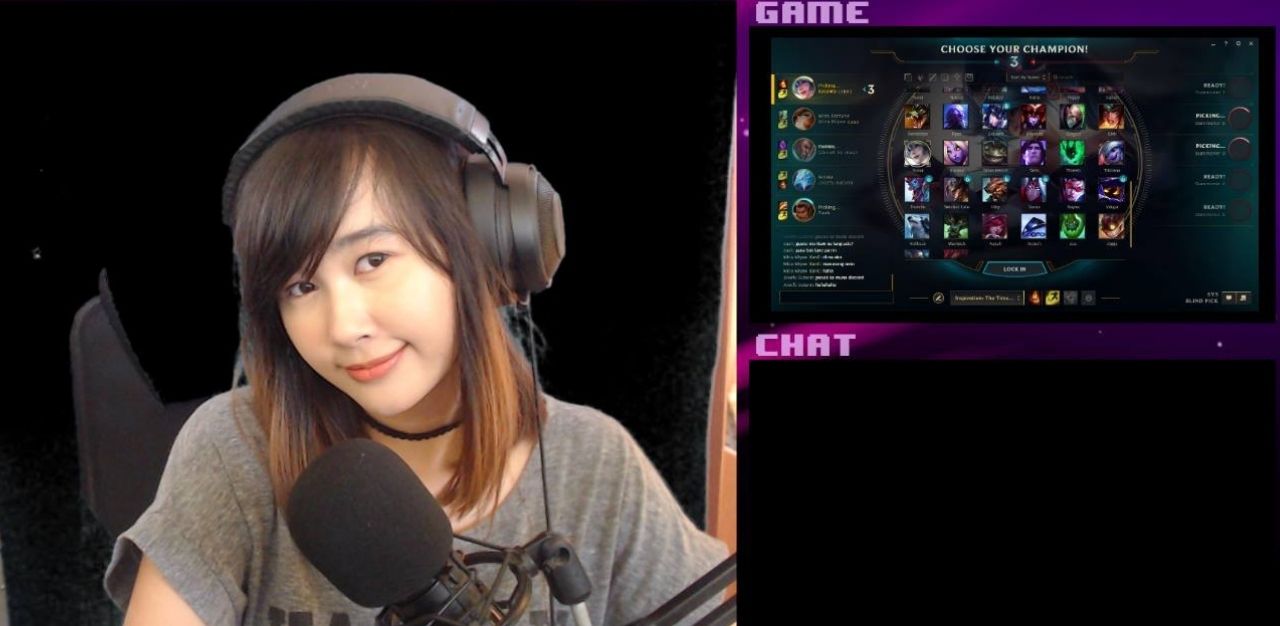
Further, gender consultancy firm 20-first discovered in their analysis of the top 14 global gaming companies that women are severely underrepresented in the upper echelons of the esports and gaming world. In 2020, of the 144 executives within the top Executive Teams, a mere 23 were female.
In-game, Ms Lee adds that oftentimes, female gamers are relegated to playing support roles in team games. She recalls that she was asked to play a supporting role instead of a subtank (a more aggressive role) in team-based, first-person shooter game Overwatch, with her fellow players giving reasons like it being “easier to pick up”.
“I felt prejudiced [against],” she shares. “I had to really stand up and argue a lot for myself. It’s not that I don’t want to do something that could be good for the team, but I don’t think I should be the only one sacrificing my effort and time just to do what they think is the best for the team.”
Such expectations on female gamers can become a barrier for young girls who wish to pick up gaming, Ms Lee asserts.
“It really affects other girls coming into the community because they don’t believe they can do it,” she explains. “They see a girl being forced into support roles not being able to play duelists (the aggressor role in Valorant), and they believe that that’s all they’re meant for.”
Navigating the gaming landscape as female
Various research studies have consistently found that women often experience general and sexual harassment from other players. As a result, many have taken to various strategies to mitigate harassment, such as by hiding their identities, or avoiding communication with other players.
Ms Fabella relies on the latter when she is gaming: “I don’t turn on my [in-game voice communications] just because I don’t want to subject myself to unwanted comments or anything about my gender… I don’t want to get harassed.
“I think that alone says a lot of how commonplace it is,” she rues.
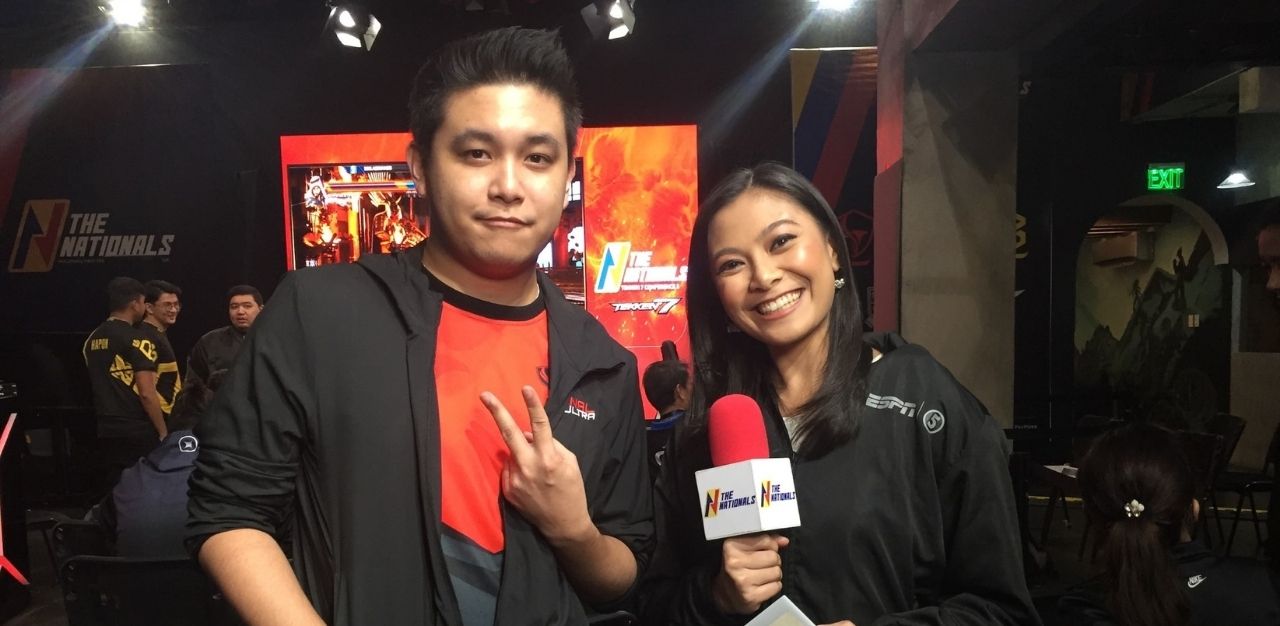
Ms Lee, who has long since gotten used to the prejudice that comes with being a female gamer, still reports being slightly hesitant to turn on her in-game voice communication function after particularly “toxic” games.
“It’s better if I keep my mouth shut,” she says. “Sometimes it feels like if they don’t know I’m a girl, they will just do what they are supposed to do and I don’t have to worry about losing [because they don’t want to listen to me].”
She adds, “It’s more in the interest of my rank [within the game] than me being affected, because I’m upset about what they said about me.”
For new gamers wanting to enter the esports or streaming world, Ms Thomas advises, “You have to have thick skin… Being a female gamer… it’s like a prerequisite that you know you are going to encounter not nice people, people who are going to be discriminative towards you, or think that you suck.”
But she says that these people are not representative of the entire community. The majority are still “very nice people” that will “celebrate with you”, “encourage you”, and “support you”.
Moving towards a more inclusive gaming community
In recent years, the landscape seems to be moving towards a more inclusive community as female gamers and streamers worldwide have been gaining traction and support. While men still dominate the space, women are slowly catching up, with popular streamers like Rachel ‘Valkyrae’ Hoffstetter clocking 23.6 million hours of watch time on her streams in 2020.
Ms Hoffstetter was also recently made co-owner of esports organisation 100 Thieves in April, making her one of the only female co-owners of an esports organisation.
Of the changing landscape, Ms Lai says: “The gaming community views female gamers in a more positive light now compared to the past, and become really welcoming of female viewers as well.”
She elaborates, “While discrimination is still a thing, the vast majority of the gaming community now rally against it, and it’s just really heartwarming to see. So I think we are slowly moving away from these stereotypes and misconceptions.”
Within their professional capacities working in ONE Esports, Mses Tuting and Fabella also report feeling comfortable within their teams, even if they are primarily male.
“I never once felt that my ideas weren’t valid or that I wasn’t being heard,” says Ms Fabella. “I think it’s a sign that the space is a lot more friendly and a lot more welcoming to talk about issues like this [the gender disparity issue], and to grow out of it too.”
Hopes for a gender-equal future
As the industry grows, Ms Lee hopes that greater infrastructural support will be provided to female gamers, such as larger prize pools for all-female tournaments, and for larger companies to continue bringing in more female gamers and talents, to serve as role models in the industry.
In competitive stages, Ms Tuting wishes for a day where men and women can compete at the same level without any gender prejudice or discrimination.
Likewise, Ms Thomas yearns for that day when there will no longer be a need to differentiate between male and female gamers: “We’re just a community of gamers… Ultimately, you don’t know who you’re playing against. You’re playing on a PC, you’re playing against a character, so [gender] doesn’t matter.”
Ms Fabella agrees, “I would love for the day when it doesn’t have to be news anymore. When we don’t have to write headlines like, ‘Oh, this woman team’, and stuff. [When] we’ve completely outgrown the misconceptions and little prejudices that we have, and it can just be.”
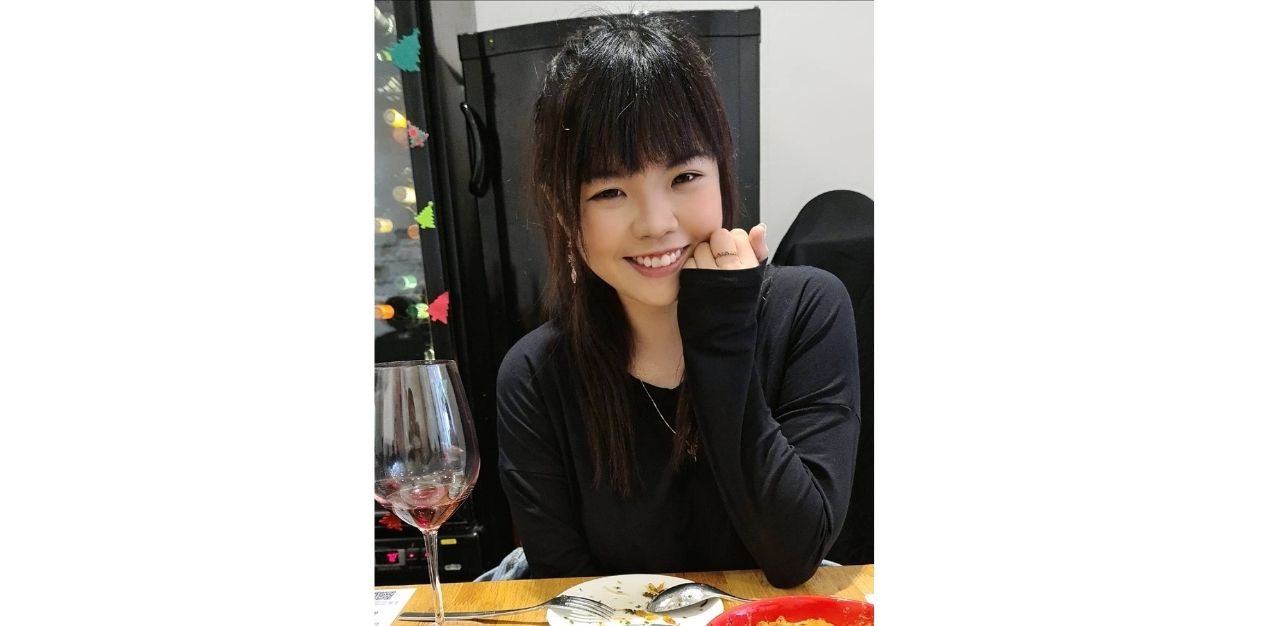
And for young girls who dream of entering the industry, Ms Lai has some words of encouragement: “I know it’s really scary to think about taking a step into a male-dominated industry. But the esports industry, while tough, is a great place to be,” she assures. “So if you truly have a passion for esports, just go for it. Don’t let that fear stop you…cIt’s only impossible if you allow yourself to believe that you cannot achieve it.”
She concludes, “At the end of it, I would love to see more ladies out there joining the industry and get to experience the same joy that I feel daily from being in it.”
Join the conversations on TheHomeGround Asia’s Facebook and Instagram, and get the latest updates via Telegram.














